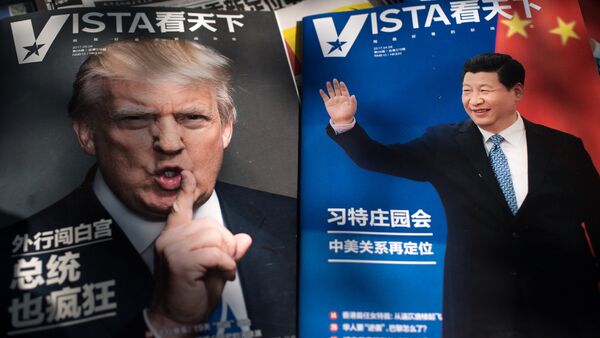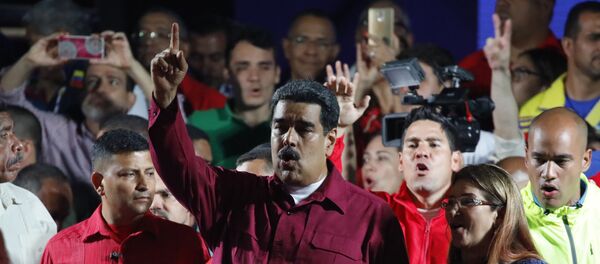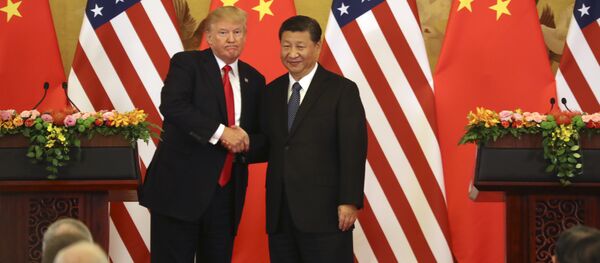Amid the US's new crusade against Venezuela, China has signaled that it won't follow suit, says Alexander Kharlamenko, a research fellow with the Institute for Latin America at the Russian Academy of Sciences.
"China is a leading economic partner of both Iran and Venezuela," Kharlamenko told Sputnik China. "This once again shows that Washington's crusade against Caracas is primarily aimed at limiting China's economic influence in the Western Hemisphere."
The researcher believes that the US is seeking to kill two birds with one stone, imposing pressure not only on Latin American states, but also on China, its independence and global economic activities. Washington is trying to force Beijing to obey its rules under the threat of severing trade ties between the US and the Middle Kingdom.
In response, Chinese Foreign Ministry spokesman Lu Kang stated: "China develops normal relations with other countries in the world, including normal cooperation. I think other countries should not make irresponsible remarks about this."
Commenting on the matter, Jiang Shixue, the head of the Center for Latin American Studies at Shanghai University, emphasized that Beijing won't allow other states to meddle in its foreign policy, stressing that for its part China has long adhered to a non-intervention policy in relations with other countries.
"The development of trade and economic ties between China and Venezuela is based on the voluntary choice of the two parties and complies with international law and principles of international relations. This is a normal interstate practice. As for China providing various forms of financial support to Venezuela this is equally dictated by the necessity to develop their trade and economic relations. Therefore, the US has no reason to force China into following its sanctions policy against Venezuela. The US adhered to a hegemonic policy and the position of strength policy."
The US neither has the right to interpret its own principles as "God-given" nor identify them with international regulations, Jiang underscored, adding that similarly, Washington has no right to demand that others obey its orders.
According to the scholar, the US behavior could be qualified as nothing short of "neo-hegemonism."
"It means that everything what the United States likes should also appeal to other states, while they have to oppose what the US opposes. This is an absolute absurdity from the standpoint of the 21st century logic."
Both Venezuela and the Islamic Republic are leading OPEC members. According to Kharlamenko, by targeting Venezuela and Iran, the US is dealing a heavy blow to the oil cartel, which could end up as a "backyard" of the US and Saudi Arabia.
At the same time, it would exert further pressure on China — the largest importer of oil and natural gas from Iran and Venezuela, the academic noted, adding that it is part of Washington's broader plan.
Earlier, China's Foreign Ministry signaled that it would continue to maintain working relations with Iran within the framework of the JCPOA and called upon the other signatories to the deal to adhere to its principles.
Following the imposition of restrictions against Tehran and Caracas, Turkey announced that it would continue to develop relations with the two regardless of Washington's sanctions.
The views of the contributors do not necessarily reflect those of Sputnik.







